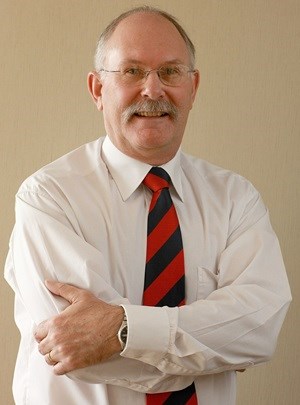
Top stories



ESG & Sustainability#BudgetSpeech2026: SRD grant unchanged, other Sassa social grants see hike
3 hours



More news







ESG & Sustainability
South Africa’s carbon tax should stay: climate scientists explain why













“A cell phone that records meeting minutes and is also a high definition television screen is great, but imagine if that cell phone was enabled with artificial intelligence (AI) and could send messages without your manual input, making use of insight from your messaging and social media data history – one could assume that a few of your contacts might receive inappropriate messages,” says Engelbrecht.
While the technological age is full of brilliant innovations - Uber, Amazon, Netflix, Airbnb, Spotify and Facebook to mention a few – Engelbrecht says that the temptation to create the “next big thing” sometimes causes entrepreneurs to fall into the trap of disruption overload.
He explains that disruption overload occurs when the innovation is too ahead of its time – meaning that the mass market is unable to access it. “While the makers of the original Macintosh computer knew that the world would one day become attached to their personal computers – they had to wait many years before the market could understand their product.” Engelbrecht says that for entrepreneurs with limited capital, it is not always possible to survive the wait.
Engelbrecht says that sometimes it is not that the market is not yet prepared for the new technology, but that the product itself is far too complicated and consequently, not user friendly. “Innovators, in their enthusiasm for advanced product making, sometimes forget that the mass market is not as tech-savvy as they are.” Engelbrecht says that it is important for the new product development process to involve input purely focused on the user accessibility of the product.
From a South African perspective, Engelbrecht adds that while the emerging market has embraced many sophisticated tech products, it is important for entrepreneurs to recognise the needs of the entire mass market and understand that their business and product may not be appropriate for every sector. “In developing your business’ product or service, you need to be clear on the exact audience you are targeting, and ensure that your product is easily accessible, understandable, and attainable for that specific market.
Engelbrecht adds that when talking about innovation, it generally likened to technological advancements. But, he says, some innovative needs are not based on technology – these are perhaps the instances where a simple makeover of the current product into a newer, more efficient and cost-effective version is required. “For example, there is no need to automate washing powder, but liquefying it, or increasing the cleaning strength is a viable innovation with the capacity to reach the product’s existing market.”
Engelbrecht says that it is also important to take into serious consideration the sustainability of your innovation. “Change is fast-paced, and your products need to hold up long enough for the market to understand them and build a loyalty to them.” He says that a sustainability strategy should be prioritised in the product development process.
Speaking in light of the 2018 Entrepreneur of the Year competition, Engelbrecht says that all of this year’s finalists are contenders for the “Innovator of the Year” prize, having all created truly innovative businesses for the South African landscape. “These finalists are examples of striking the important balance between innovative and accessible,” he says.